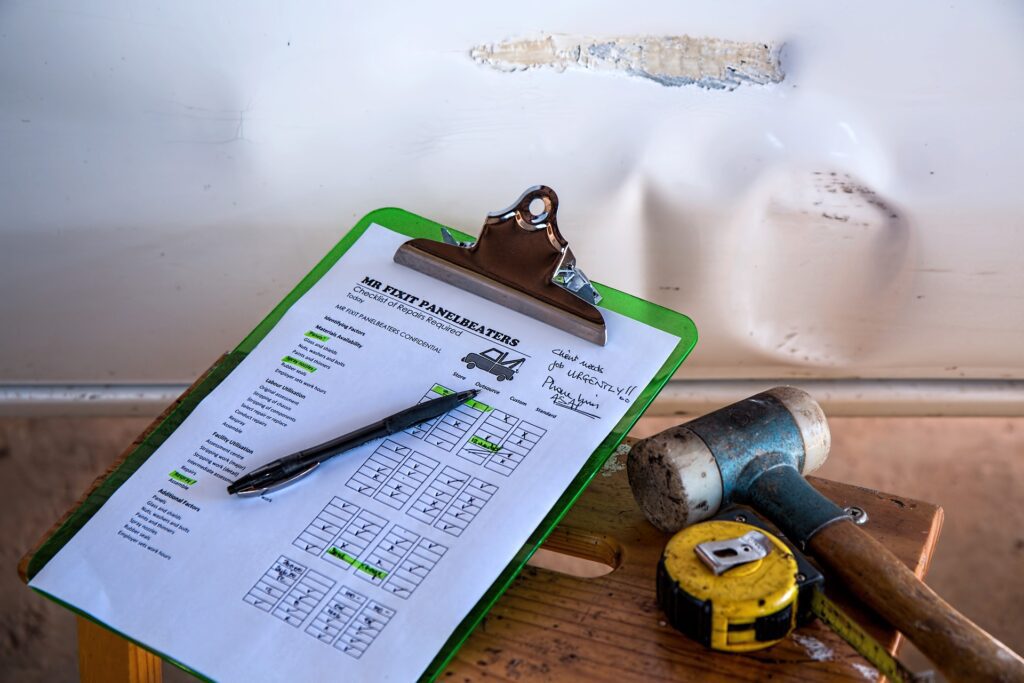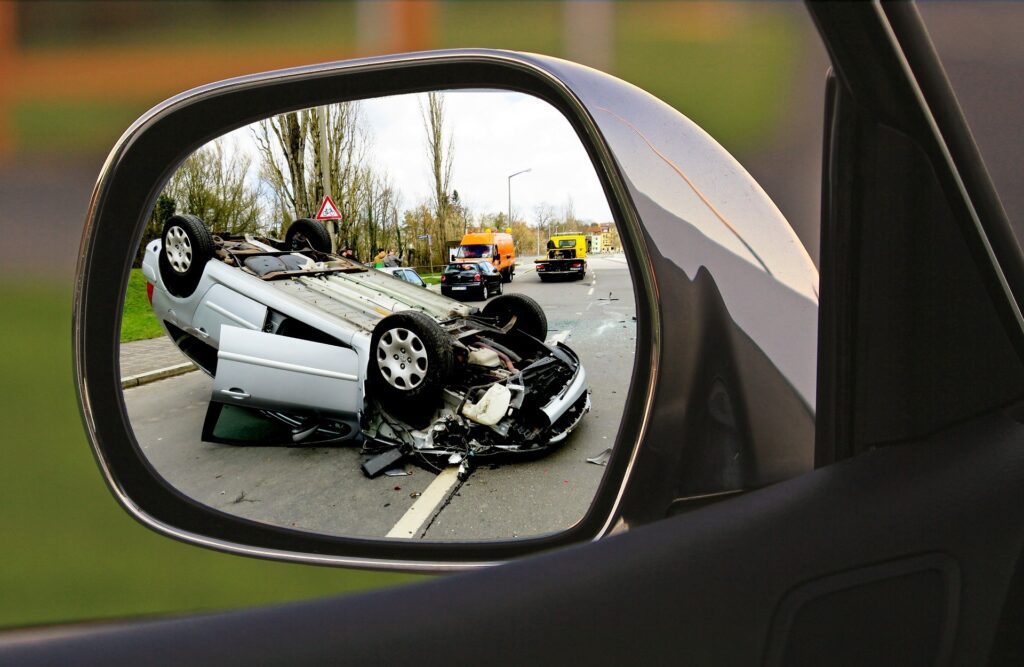Jacksonville is among the largest US cities. It is the seat of Duval County and one of Florida’s most densely populated areas. As such, the city is more prone to traffic accidents because of increased vehicle density and pedestrian or bicycle activity.
Florida has recorded more than 146,074 car crashes since the start of the year. At least 1,178 of these collisions resulted in fatalities, causing 1,256 deaths. Duval County, in particular, recorded 9,051 motor vehicle accidents, resulting in 62 deaths and 6,052 injuries.
Various legal options are available to car accident victims so they can pursue compensation for their injuries. They can file a personal injury lawsuit or negotiate a settlement with
Suppose you were involved in an auto accident in Jacksonville. You can seek legal representation from a law firm specializing in personal injury cases. Many of these law offices usually offer free consultations to potential clients. During the consultation, a Jacksonville car accident lawyer will evaluate the accident’s details and strategize the best approach for your car accident claim.
Key Takeaways
|
Common Traffic Violations in FL
Traffic violations contribute significantly to car accidents in Florida. These infractions are prevalent on roadways and pose a serious risk to the safety of road users.
A traffic violation’s consequences range from minor fender-benders to severe and fatal crashes. Understanding a traffic violation’s impact on traffic accidents is vital to highlight the necessity of adhering to traffic laws and regulations.
Careless driving
Driving a car without caution and adequate attention increases the risk of car crashes. Suppose a driver fails to prioritize road safety and engages in reckless behavior. They can compromise their ability to respond effectively to dynamic road conditions and unexpected situations.
Examples of careless driving include distracted driving, such as texting or eating while driving. These actions divert a motorist’s focus from the road and increase the chances of a collision. Another example is aggressive driving, like tailgating or frequent lane changes. They not only endanger the driver but also put others at risk.
Speeding
Driving beyond the posted speed limit is hazardous and considered a traffic misdemeanor in Florida. Speeding increases the risk of traffic accidents significantly and can lead to more severe injuries.
For example, a collision’s impact force depends on the vehicle’s speed during the crash. Speeding above the posted limits worsens the crash forces involved in an accident. It intensifies the potential for severe injuries, such as whiplash, brain injuries, and internal organ damage.
Other possible consequences of speeding include the following:
- Reduced reaction time
- Increased stopping distance
- Loss of vehicle control
- Reduced effectiveness of safety features
- Increased severity of pedestrian and cyclist collisions
Failure to yield
A common cause of traffic accidents is failing to yield to others on the road, including pedestrians or cyclists. For example, motorists may fail to give way at intersections, which may lead to collisions.
It can occur when a driver fails to yield to other vehicles, motorcyclists, or cyclists with the right of way. Similarly, motorists may fail to yield at crosswalks for pedestrians crossing the road legally.
Another concern for road users is situations where motorists do not give way to school buses or emergency vehicles. It is particularly hazardous at school crossings where school buses pick up or drop off children.
In addition, emergency vehicles, like ambulances, fire trucks, or police cars, respond to emergencies with sirens and lights. Failing to yield in such situations can impede emergency response and increase the chances of accidents.
Steps To Take After a Motor Vehicle Accident
After a car crash, taking proper steps is crucial, as actions immediately following the incident significantly impact personal injury claims. You can use the following steps for a smoother claims process and increase the likelihood of receiving fair compensation.
Stay calm and assess the situation
Take a second to breathe and clear your head. After you’ve calmed down, move to a safe area to mitigate the risk of further injuries or additional accidents. Suppose it is not feasible to move the vehicles. You can turn on your hazard lights or emergency flashers to alert other road users of the collision.
Seek medical attention
Checking for injuries and calling for emergency medical care is a top priority after any accident. Some injuries may be immediately apparent. However, it is essential to note that specific injuries may not be visible to the naked eye or take a few days to manifest symptoms.
Even if you initially feel fine, it is vital to seek medical care immediately. Medical professionals can conduct a thorough examination and determine underlying injuries, such as internal injuries, soft tissue damage, and head trauma.
Prompt medical evaluation ensures your well-being and provides vital documentation of injuries for
Contact the authorities
Contact the Jacksonville Sheriff’s Office or the Florida Highway Patrol (FHP) and obtain a police report. This official record of the accident is vital when filing
The police report contains details, such as the accident’s date, time, and location. It also assesses the crash and determines whether a negligent party violated any traffic laws during the incident.
Exchanging information with other parties involved is also essential for filing
Document the accident
Taking photos or video footage of the accident scene is highly recommended to support your claim. Include all visible property damage and physical injuries as visual evidence to establish losses when pursuing damages.
In addition to capturing visual records, gather witness testimonials and their contact information. Their testimonies can provide an objective perspective and corroborate your version of events, strengthening your claim’s credibility.
Contact a personal injury lawyer
Consulting a lawyer is crucial before negotiating with
Legal Remedies for Car Accident Cases


In car accident cases, victims have legal options available to recover damages for injuries and other losses.
To successfully pursue a case, accident victims must establish negligence on the part of the liable party. Negligence refers to the failure to exercise care, leading to harm or injuries to another person.
Suppose the accident victim demonstrated the at-fault party directly caused the accident and resulting injuries. They can seek compensation for economic and non-economic damages.
Consulting with a car accident attorney is crucial to assess the strength and credibility of your case. Similarly, they can help you navigate legal procedures and increase your chances of recovering fair compensation.
Car accident claims
Accident victims can file auto
First, the claimant must gather all relevant documentation related to the accident. It includes photographs, witness statements, and police reports. Afterward, they should notify their
Reviewing their
- Liability
Insurance : This policy is mandatory in most states and helps pay for injuries or damages to others if you are liable for an accident. - Personal Injury Protection (PIP): Some states require motorists to carry PIP
insurance . It covers medical expenses and related costs for the motorist and car occupants, regardless of who was responsible for the incident. - Collision Coverage: This
insurance pays for vehicle damage from a collision, regardless of fault. - Comprehensive Coverage: This coverage pays for property damage from incidents other than collisions, like theft, vandalism, or natural disasters.
Civil litigation
Sometimes,
Filing a lawsuit is a legal action permitting victims to pursue their claims through the civil court system. However, civil litigation can be more expensive and time-consuming than settling through
Lawsuits involve court proceedings, including hearings, motions, and potentially a trial. This process can span for months or even years, depending on the case’s complexity and the court’s schedule.
Factors Affecting Compensation
Several factors can significantly influence the compensation an accident victim may receive when seeking damages for car accident injuries. Similarly, a combination of various elements determines the outcome of a personal injury claim or lawsuit.
No-fault insurance system
Some states implement a no-fault
In these states, each party involved in an auto accident can file a claim with their own
The no-fault
In addition, certain states have thresholds or limitations on when an injured victim can pursue a lawsuit against the party at fault.
Comparative negligence
Comparative negligence is a legal principle applicable to personal injury cases. It determines the degree of fault and allocates liability between multiple parties in an accident. It is based on the idea that various parties may contribute to an accident and the resulting damages.
Generally, comparative negligence assesses each party’s fault percentage and reduces the accident victim’s compensation proportionately.
Florida follows modified comparative negligence. It means the plaintiff can only recover damages if the court determines them to be less than 50 percent liable for the incident. Suppose the plaintiff is responsible for over 50 percent of the car crash. The court may bar them from recovering any compensation.
However, if their fault falls below the threshold, the court reduces their compensation accordingly. Suppose they are responsible for 35 percent of the accident. They can recover 65 percent of the damages.
Compensation in Auto Accident Claims
Claimants in car accident cases may recover different types of compensation to address their losses from the accident. These damages aim to restore the plaintiff to their pre-accident state as much as possible.
The different types of compensation include the following:
- Medical bills: These include reimbursement for past and future medical treatments, surgeries, medications, hospital stays, rehabilitation, and other necessary medical expenses.
- Lost wages: Accident victims may receive compensation for the income they lose due to the accident. It includes wages they could have earned during their recovery period, including benefits, bonuses, and incentives.
- Property damage: If the accident destroyed an injured victim’s vehicle, they can recover funds to repair or replace it.
- Pain and suffering: This type of compensation addresses physical and emotional pain, distress, and suffering as a result of the crash.
- Loss of consortium: This compensation applies to those whose spouse or family members suffered a wrongful death in the accident. It addresses the loss of companionship, guidance, and support.
The availability and extent of compensation can vary depending on the jurisdiction, the accident case details, and other state or federal laws. In addition, the court can award punitive damages if the liable party’s actions were intentional or reckless.


Pro Tip
Under Florida statutes, car accident victims must file a cause of action within four years for cases founded on negligence.
Avail of a Free Consultation With a Jacksonville Accident Lawyer
Car accidents can be highly traumatic for those involved. However, knowing what to do during these times can help ease the burden of addressing these concerns.
In addition, you don’t have to navigate the complex personal injury system alone. The Personal Injury Center works with experienced car accident attorneys to provide you with legal guidance and representation.
Reach out to The Personal Injury Center to evaluate the details of your accident and determine the best strategy for pursuing your claim. If you want to learn more about car accident cases, you can browse our website for important tips.
File a claim with the help of a Jacksonville car accident attorney. Contact The Personal Injury Center to find a suitable lawyer for your case.
FAQs on Car Accidents in Jacksonville, Florida
What if the other motorist in the accident doesn't have insurance in Jacksonville?
Suppose you carry uninsured or underinsured motorist coverage. It can reimburse your expense if the liable driver doesn’t have insurance or has insufficient coverage to compensate for your losses.
How much does seeking legal representation in Jacksonville cost?
You can pay personal injury attorneys on a contingency fee basis. It means you can pay them after they settle your car accident case. On average, lawyers ask for anything between 30 and 40 percent of the total settlement offer.
Can I file an accident claim if I was a passenger in the vehicle during the accident in Jacksonville?
Yes. Anyone involved in a car accident can file a claim or lawsuit to recover compensation for their injuries and other losses.



